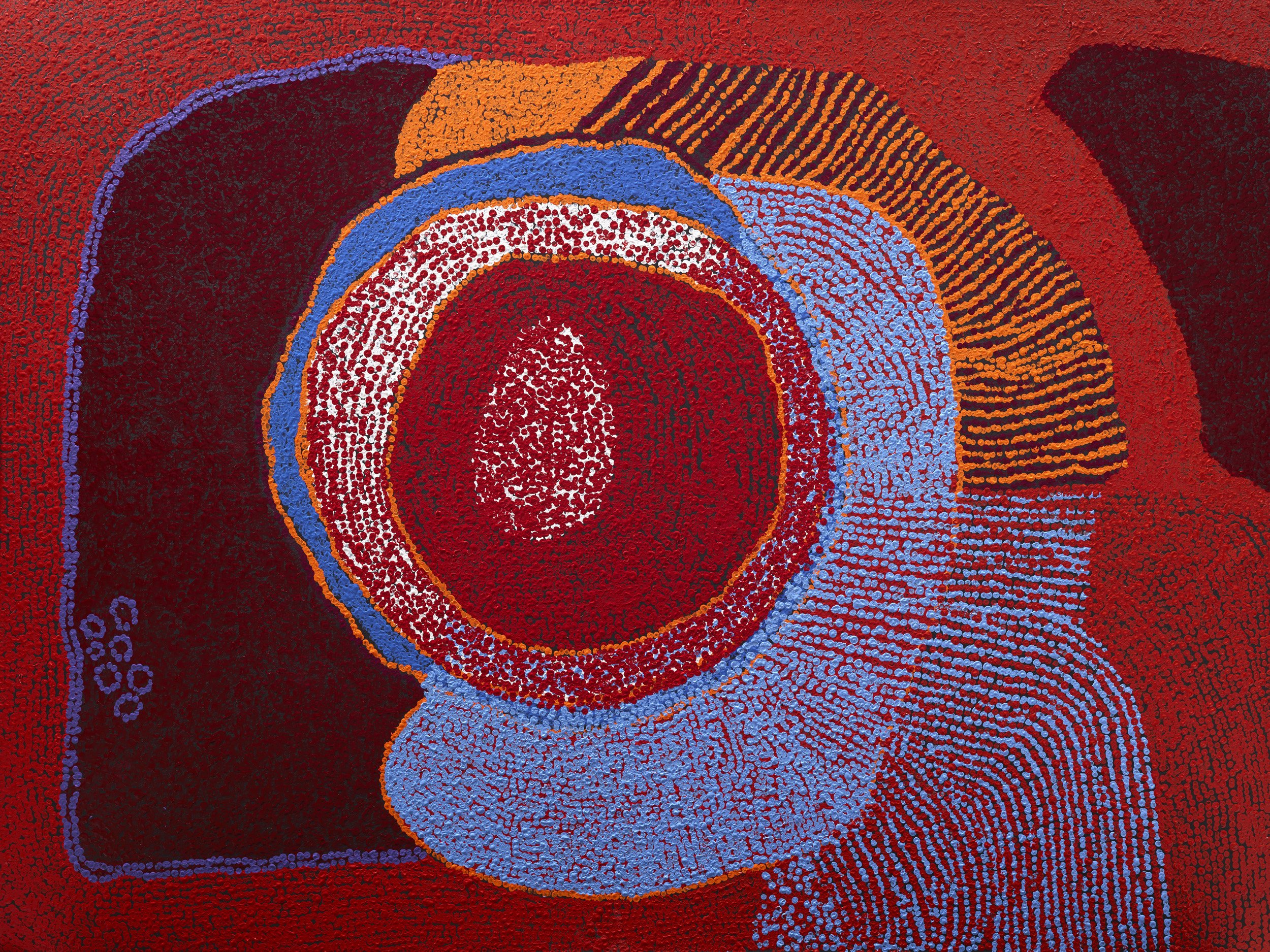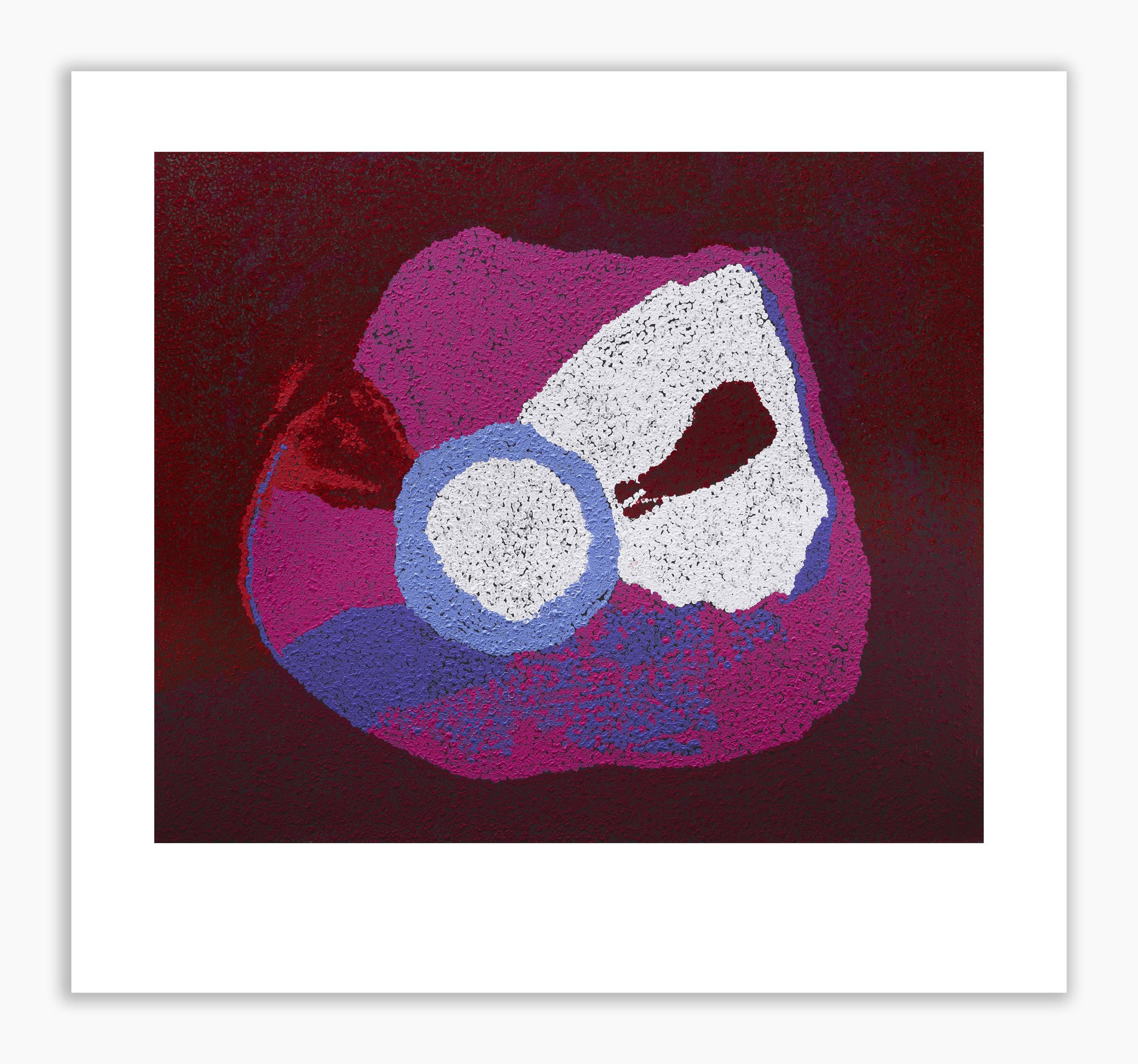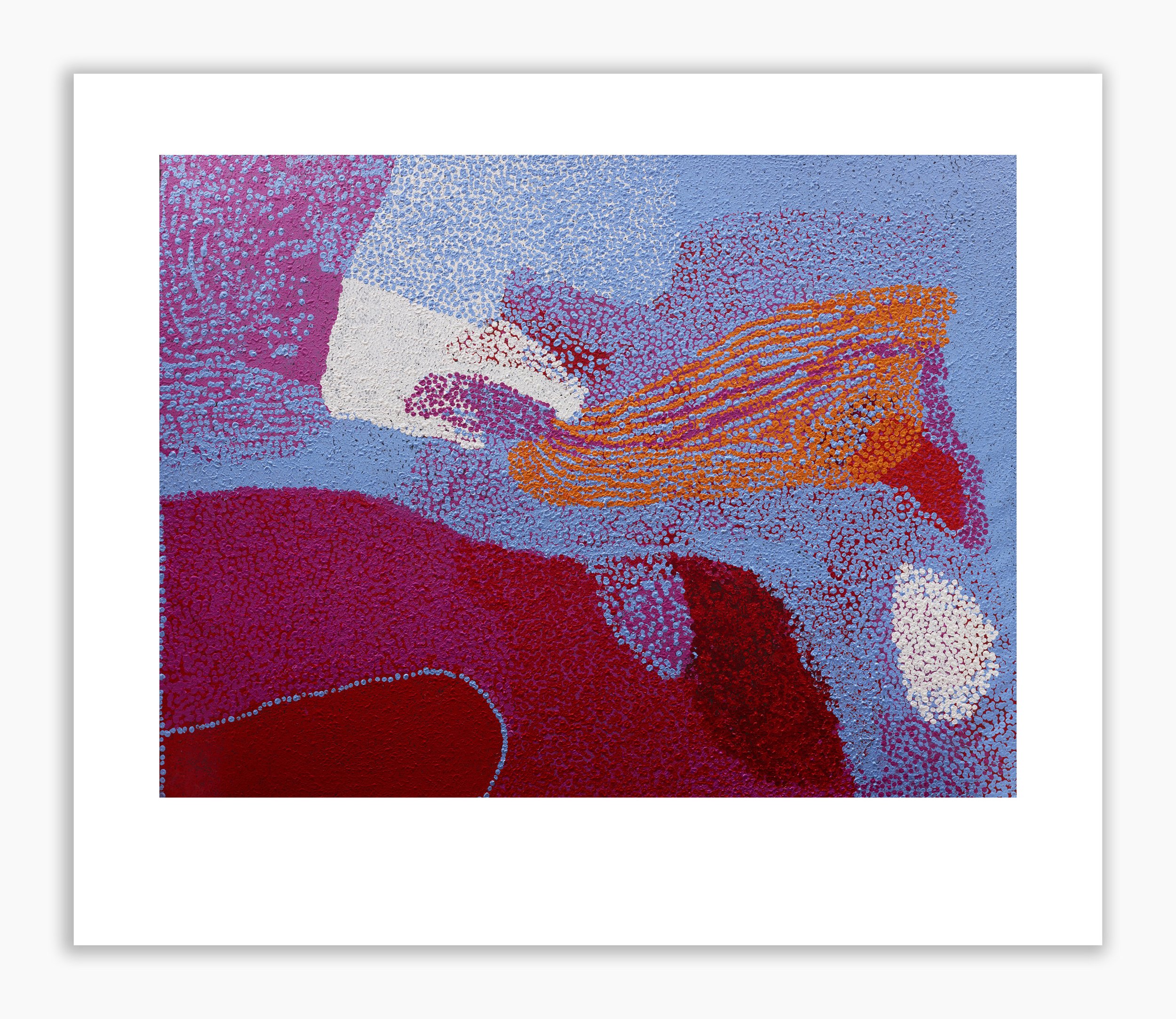
Tommy Watson
Yannima Pikarli Tommy Watson is one of the giants of Australian contemporary art. He rises beyond decriptions such as Indigenous, Traditional and Modern. His work trancends any of the miraid of adjectives that most critics serve up. Tommy is simply Tommy. He paints with an explosive and unparalled colour palette.
He was born around 1935 in Western Australia, near the junction of the border with the Northern Territory and South Australia and is a senior
Pitjantjatara elder. His given names of Yannima and Pikarli relate to specific sites near Anumarapiti, located 75 Kilometers West of the small community of Irrunytju.
His mother died during his infancy and his father also tragically died when Tommy was about eight years old. He subsequently went to live with his uncle who then sadly died two years later. Following this series of unfortunate deaths He was then adopted by Nicodemus Watson, his father's first cousin. He then went to live at Ernabella Mission, and decided to take the surname Watson in addition to his Aboriginal birth name thus becoming Tommy Yannima Pikarli Watson.
Nicodemus Watson was a strong father figure, and tought young Tommy the traditional skills of hunting and gathering necessary for survival in the harsh Australian desert. He learnt the traditional skills of hunting, tool making, weapons making, and how to find water. Such skills that are essential for survival in such a harsh environment.
In this old country, under the guidance of Nicodemus Watson,
Tommy Watson gained a deep understanding of the environment and its relationship to his own ancestral stories. To the Aboriginal peoples of Australia these ancestral stories are collectively known as Tjukurrpa.
Tommy was sent to school at the Ernabella Mission which opened in 1940. He was not at Ernabella for long before he was taken back to his community to be initiated. His upbringing is similar to that of many Indigenous people born in that era. He lived a traditional nomadic existence, and worked as a stockman and labourer. During his time working at Papunya he met the school teacher Geoffrey Bardon who was instrumental in developing the western desert art movement.
He began painting in 2001, at the Irrunytju community art centre in 2001. Soon recognized as a leading light in the Aboriginal Art movement, he is held in great esteem by art collectors and art lovers globally.
Tommy Watson keeps the sacred meanings of his paintings private. He doesn't explain their spiritual meaning. His paintings can be described as abstract expressionist. The colors and abstract shapes are stunningly beautiful.









